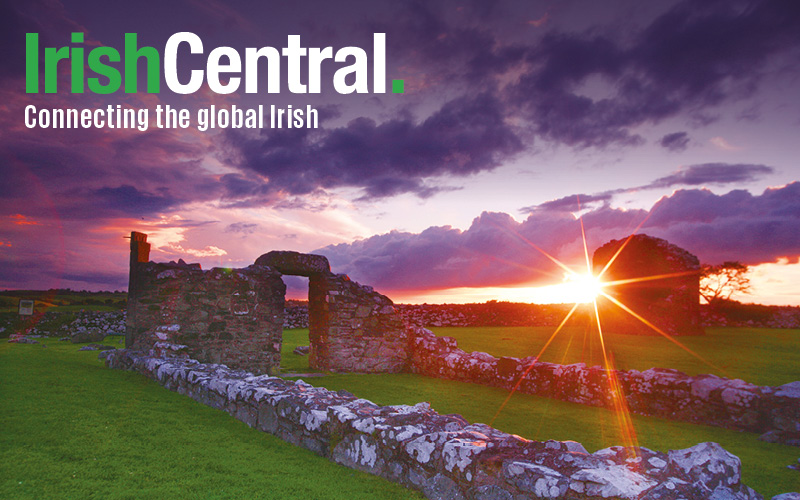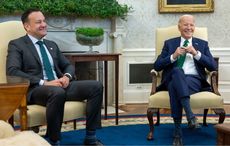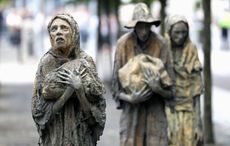Ireland is still reeling from the news that the UK has made the decision to leave the European Union.
Despite Scotland and Northern Ireland both voting to remain, the “Leave” vote won with 52% versus 48%, leaving Ireland unsure as to the future of our relationship with our closest neighbor and holding concerns as to trade and travel between the countries, in particular between Northern Ireland and the Republic.
Google has shown that UK searches on “what happens if we leave the EU” tripled within hours of the vote closing.
There was also a surge in Northern Ireland residents looking to acquire a passport from the Republic of Ireland which would still allow them to travel freely to other EU states.
Dominic Grieve MP, Stay Campaign, says UK can no longer negotiate bilateral trade agreements with Ireland #Brexit https://t.co/P6BKRoN4mE
— RTÉ News (@rtenews) June 24, 2016
Taoiseach Enda Kenny released a statement earlier today in which he outlined the key actions the Irish government will take to ensure Brexit will not negatively impact the country on a large scale. With the UK set to leave the EU over the next two years, the free flow of people, goods and services will not be immediately changed and Kenny stated he would work to keep the Common Travel Area between Britain and Ireland in place.
“Ireland is a strong, open and competitive economy – our ongoing economic recovery is testament to our resilience,” the Taoiseach said.
“We will continue to implement policies that prioritise economic stability, growth and job creation.
“In the immediate term, the Minister for Finance and his officials are in close contact with the Central Bank, the NTMA and our international partners to ensure that any short-term market volatility is carefully managed. They will continue to monitor and assess developments.”
Kenny will also meet with the Northern Ireland Executive in the coming weeks “where we will have detailed discussions on how to best approach these new circumstances.”
Asking our readers if they want to see a United Ireland after #Brexit. 62% yes so far https://t.co/OaAxEEAgsT pic.twitter.com/t1IMsiHiCH
— TheJournal.ie (@thejournal_ie) June 24, 2016
Currently on a visit to his golf clubs in Scotland, presumptive Republican nominee Donald Trump welcomed the “leave” vote, congratulating the country for what he termed the choice to take their country back, despite Scotland’s “remain” vote and Trump commenting just days ago that he was not aware of what was the Brexit referendum was about.
In typical Trump fashion, however, he spoke of the benefits it would have for his own golf course.
“When the pound goes down,” he said, which is already proving true, “more people are coming to Turnberry, frankly.”
Trump also compared running a nation to running a golf course, an analogy he should probably reconsider as part of his campaign strategy when one of his Scottish courses lost $6.2 million over four years.
“You’ll be amazed how similar it is. It’s a place that has to be fixed,” he said.
Donald Trump on #Brexit: "I love to see people take their country back" #EURefResults https://t.co/P7b3fidAam https://t.co/ri6jxQuL35
— CNN Politics (@CNNPolitics) June 24, 2016
President Obama, who campaigned for the UK to remain in the EU, has advised that we must respect the UK’s decision, aiming to put uneasy American minds at rest by emphasizing that the US’s relationship with the now former EU member will be maintained.
“The United Kingdom and the European Union will remain indispensable partners of the United States even as they begin negotiating their ongoing relationship to ensure continued stability, security, and prosperity for Europe, Great Britain and Northern Ireland, and the world,” he said.
U.S. stocks in tailspin after historic U.K. vote to exit EU. Dow plunges 500 points on fears for global economy. https://t.co/A9OlUXl3FI
— CNNMoney (@CNNMoney) June 24, 2016
Speaking from Ireland, Vice-President Joe Biden built on Obama’s statement.
"We would have preferred a different outcome," Biden told a crowd in Dublin.
"But the United States has a long-standing friendship with the United Kingdom and that very special bond will endure."
The president of the Capitol Hill-based Irish National Caucus reacted in horror to the news, however, speaking of his concerns for the Northern Ireland border with the Republic.
Fr. Sean Mc Manus, a native of Northern Ireland, stated: “I come from County Fermanagh, one of the Six Counties in Northern Ireland. Not only is my country divided, but my historic parish of Kinawley is also arbitrarily and arrogantly divided by that damn Border— part is in the Six Counties and part in the Irish Republic.
“While the UK was in the EU, and with the coming of the peace-process, I had the joy of driving seamlessly home each summer from Dublin to the parish of Kinawley, and not seeing one British Custom Post or one British Army manned Border fortress.
“Now I dread not being able to ignore that damn British border again.”
In the UK itself, Prime Minister David Cameron has announced he will step aside in October, potentially leaving the path clear for former London mayor and one of the head “Leave” campaigners Boris Johnson to take the helm, a man with whom many could draw similarities to Trump.
Thank you everyone who voted to keep Britain stronger, safer & better off in Europe - and thousands of @StrongerIn campaigners around the UK
— David Cameron (@David_Cameron) June 23, 2016
Even within the UK, many are shocked that “Leave” took the day with some voters now experiencing a hangover of Brexit regret today and wishing they had voted to remain.
In an interview with the BBC, one such voter admitted he was worried about the instability that has now been created, stating that he did not feel that his vote would count.
Another voter speaking from Manchester airport told ITV that if she was given the opportunity to vote again, she would change her vote to “remain.”
"Even though I voted to leave, this morning I woke up and I just — the reality did actually hit me," she said. "If I'd had the opportunity to vote again, it would be to stay."
Voters’ regret is not helped by the admission of Nigel Farage from UKIP this morning that he will not be able to guarantee the money originally being sent to the EU each week will instead go into the British health service, a claim that was made by the Leave campaign in the past few weeks, and a reason for some voters decision not to remain.
WATCH: @Nigel_Farage tells @susannareid100 it was a 'mistake' for Leave to claim there'd be £350M a week for NHShttps://t.co/JNkl5k8IlK
— Good Morning Britain (@GMB) June 24, 2016
The big lie. If you voted based on a slogan on a bus, now you know your mistake. The NHS will not get that money. pic.twitter.com/mZeoBSXDmO
— Peter Halpin (@peterhalpin) June 24, 2016
Farage has also dubbed today “Independence Day,” which some are viewing as a slight on the many countries who fought for their own independence from the British Empire, Ireland included.
The British sterling this morning plummeted to its lowest level in 31 years, Scottish First Minister Nicola Sturgeon has said another Scottish independence referendum is highly likely and Sinn Fein has called for a referendum on a united Ireland, all signs of the level of uncertainty that the UK, Ireland, and the EU are to face in coming months.
For the 500,000 Irish people living in Britain, the leave decision was not welcomed. One in 12 Irish graduates emigrate to the UK to work, all of whom were free to work there under the EU program. Their futures are now uncertain until the terms of the UK’s exit are worked out and agreed upon.
@FoxNews @SkyNews @BBCAMERICA @BBCBreaking Can someone tell the Americas what the EU and UN is �� #EURefResults pic.twitter.com/8rORexTMfu
— Steven (@steven0161) June 24, 2016




Comments